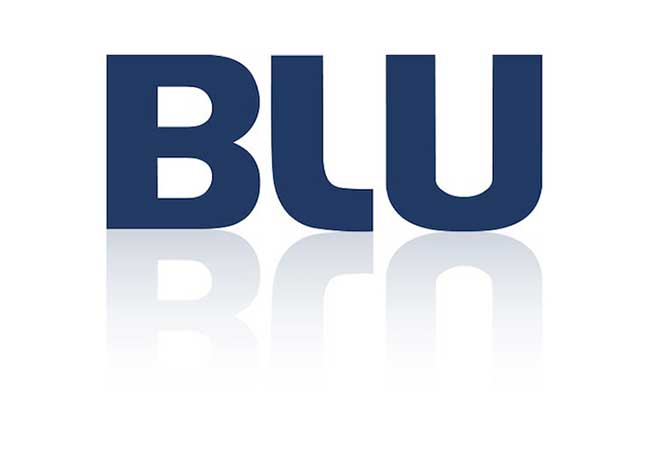This month:
St Leger Day in mid-September is historically when attention returns fully to the markets, although there has been much to act on in recent weeks. In this equities-focused edition of our Investment Bulletin, experts from our panel wealth managers set out key risks and opportunities to have on your radar as we enter autumn.
Expert investment views:
Key market and economic trends are set out for investors to observe
The alarm is sounded over US equities’ potential to fall off a “fiscal cliff”
Experts ask just how much lost ground the FTSE 100 can make up
A compelling case is set out for considering UK small and mid-caps
Featuring this month’s experts:




1. Ripping off the sticking plaster
The time is looming for the furlough scheme to end – the sticking plaster that has held the economy together since March must be ripped off.
Redundancy warnings are sounding. Marks and Spencer is the latest big employer to announce large job cuts (7,000). August survey figures from the Office for National Statistics showed nearly a quarter of businesses in the arts, recreation, accommodation and food services sectors at risk of insolvency. But across all industries, 95% of responding businesses were trading. It is not all doom and gloom.
A feature of this crisis has been the sharp divide between winners and losers. Covid has accelerated the pace of technological change, while also making some businesses obsolete and revealing the industries that are dangerously oversupplied.
Financial markets have already recognised much of this shift, hence the gap between the performance year-to-date of the technology sector (21%) and the energy and financials areas (-38% and -21% respectively).
The scale of these moves and the valuation gap between the winners and losers led to short, sharp periods of mean reversion in mid-August. But we do not expect capital-intensive areas like energy, airlines and banks to suddenly take the lead. We are finding interesting new opportunities in areas like healthcare and environmental technology.
We are also intrigued by the impact that Covid, US-China tensions and Brexit are having on “slowbalisation”. Many businesses now want to diversify supply chains and have at least some suppliers close to home
We are also intrigued by the impact that Covid, US-China tensions and Brexit are having on “slowbalisation”. Many businesses now want to diversify supply chains and have at least some suppliers close to home. This could make national or regional champions, particularly in large markets such as China, good investments.
As ever, our core focus is on quality, visibility and liquidity.

Billy Hughes
Portfolio Manager at James Hambro & Partners
2. The US “fiscal cliff” risk for equities
Investors have shrugged off higher new Coronavirus cases as well as selective retightening of restrictions in many states plus the start of the US November election campaign where Joe Biden is currently favourite.
At 24 August 2020, the S&P 500 is up over 50% from its low in March and trading close to an all-time high* thanks to the dominance of the big five technology companies. Improving economic activity and labour data, better than expected company earnings in the second quarter, hope for a future COVID-19 vaccine and a super-dovish Federal Reserve have all contributed to US stock returns, and particularly the big tech stocks.
Nevertheless, given that an increasing share of personal income is made up of federal stimulus payments, investors are perhaps a little complacent about the risk of a so-called “fiscal (aka benefits) cliff” that could undermine the economic recovery.
Nevertheless, given that an increasing share of personal income is made up of federal stimulus payments, investors are perhaps a little complacent about the risk of a so-called “fiscal (aka benefits) cliff” that could undermine the economic recovery
A bipartisan agreement in Congress to pass a second stimulus program is widely assumed. President Trump’s recent executive orders to bypass Congress and provide Coronavirus relief funding should be viewed as only a temporary fillip for the economy. The available cash for additional unemployment insurance will only last around a month before it runs out and it is unclear whether his plan of a payroll tax deferral (note it is not a tax cut) will encourage consumers to spend more. It is not certain whether the President’s unilateral action has helped negotiations in Capitol Hill or delayed them, as it lessened the need for urgent legislation before the holiday break.
The bottom line is that without additional government stimulus, US household incomes could fall like Wile E. Coyote chasing the Road Runner off a cliff in a Looney Tunes cartoon. Under that scenario, the US recovery could come to an abrupt halt and put downward pressure on equities more broadly.

Daniel Casali
Chief Investment Strategist at Smith & Williamson Investment Management LLP

Top Tip
As this month’s experts make clear, there is a lot that equities investors need to be on guard for – but also opportunities in fast-growing and often overlooked sectors. Balancing risk and reward in markets as uncertain as these is a not insignificant challenge. Why not speak free of charge to a shortlist of wealth managers and explore how getting an expert in your corner would improve your investment returns.

Lee Goggin
Co-Founder
3. FTSE blues
The index of the largest 100 stocks in the UK has not had a good year. Compared to the main benchmark and all mighty S&P 500, the FTSE 100 has how underperformed more than 30% year to date.
It gets worse, as it does not seem to be just the Coronavirus which is causing this massive difference in returns. In the last 10 years, the underperformance is some 219%. How can this be, and is the US really so much better than the UK?
Whereas the S&P has a large contingent of technology stocks, which have done incredibly well, the FTSE contains a lot of resources and financial services companies, which have not. Then there is Brexit
One reason is surely the composition of the index. Whereas the S&P has a large contingent of technology stocks, which have done incredibly well, the FTSE contains a lot of resources and financial services companies, which have not. Then there is Brexit. Markets don’t like uncertainty, and many potential buyers have simply stayed away until the dust settles. Moreover, businesses have an even more difficult task to adapt to new rules and regulations, which are as yet undecided. As a result, investment into corporate UK has fallen off a cliff since the referendum, both foreign and domestic.
So, should we buy here in the hope that the FTSE 100 index will recover some of the lost ground? Sure, the removal of uncertainty (one way or another) will be positive for the market. Furthermore, there is always hope and mean reversion.
But there is also the currency, and the risk that sterling weakens relative to everything else. It is easy to understand why there seems no rush to do anything at all for the moment.

Christian Armbruester
Chief Investment Officer at Blu Family Office
Coronavirus has tested the mettle of all companies. But as the lumbering giants of the FTSE 100 fall victim to dividend cuts and investors suffer drops in income, in comparison, UK small and mid-cap companies often look dynamic and interesting.
We see more diversity in this area – with more tech, fast-growth healthcare, video gaming – than we do in large caps and that spread gives better opportunities to diversify a portfolio. And the major upside is the growth potential – small and mid-sized companies potentially grow at a faster rate than their large-cap counterparts.
Small-cap investing is risky – the smaller the company, the higher the risk of it going bust. But given the dearth of opportunity in UK large-caps, we think investors need to be smarter
Different categories of small caps pique investor interest. Niche businesses satisfy a specific market need – often in mature markets more isolated from disruption. “Roll out stories” are companies that have a proven and successful offering and are in the process of rolling their product out to new markets. IPOs (initial public offerings) are another interesting area for investors, as are market consolidators, companies that are buying up their competitors and improving them.
Small-cap investing is risky – the smaller the company, the higher the risk of it going bust. But given the dearth of opportunity in UK large-caps, we think investors need to be smarter. In a downturn, there tends to be a flight to large, defensive companies. But this crisis hasn’t worked like that and some traditionally “defensive” stocks have struggled. If you are an investor who likes the UK market, then small and mid-caps – due to their diversity and growth potential – might be worth a look.

Richard Champion
Deputy Chief Investment Officer at Canaccord Genuity Wealth Management
Important information
The investment strategy explanations contained in this piece are for informational purposes only, represent the views of individual institutions, and are not intended in any way as financial or investment advice. Any comment on specific securities should not be interpreted as investment research or advice, solicitation or recommendations to buy or sell a particular security.
We always advise consultation with a professional before making any investment decisions.
Always remember that investing involves risk and the value of investments may fall as well as rise. Past performance should not be seen as a guarantee of future returns.




